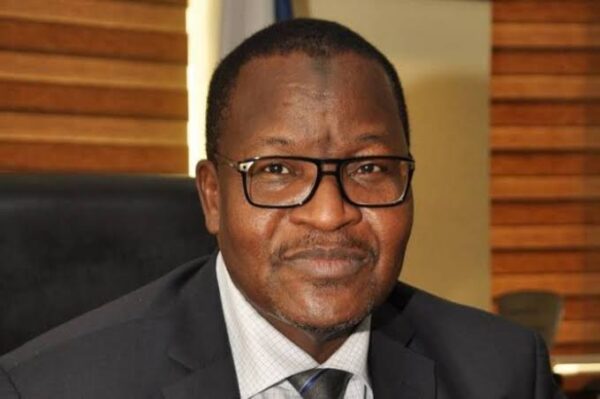The Executive Vice Chairman of the Nigerian Communications Commission, Prof. Umar Garba Danbatta, has said the Commission’s Emergency Communications Centres have become a rallying point for the promotion of the security of lives and property of citizens.
Danbatta made this disclosure in a goodwill message at the 17th edition of All Nigerian Editors’ Conference in Abuja.
The ANEC, held at the Nigerian Air Force Conference Centre, Abuja, was with the theme: “Media in Times of Crises: Resolving Conflict, Achieving Consensus.”
The EVC also revealed that the ECCs, 24 of which are currently operational in 23 states and the Federal Capital Territory, Abuja, processed about 34 million calls bordering on security and emergency issues in the first eight months of the year.

Speaking at the conference, organised by the Nigerian Guild of Editors, the EVC noted that historically, the media have always been in the vanguard of advocacy for values that are ennobling, edifying and unifying.
Hence, he urged the media professionals to continue to play their watchdog role professionally and ethically, as a rallying point for unity and security in the country.
He stated that accurate, unbiased reporting of national issues, especially those bordering on conflict and security matters, would promote economic development, fight corruption and ultimately improve security of lives and property in the country.
Danbatta stated that the NCC is contributing to improving national security in the country through the establishment of ECCs, which offer a lifeline to citizens in times of distress.
The EVC revealed that there are 23 states in the Federation and the Federal Capital Territory with functional ECCs, and the centres have continued to have profound positive impact on the lives of Nigerians.
He said: “In addition to the 23 already established and functioning ECCs, the Commission will soon activate ECCs in nine more states, and also plan to inaugurate similar project in the remaining four states by end of 2022, in keeping with Federal Government’s directive.”
The EVC noted that in the wake of COVID-19 pandemic crisis in Nigeria, over 1,500 calls connected to COVID-19-related incidents were received and processed by the Centres.
Danbatta added: “The Centres provided a platform for members of the public to seek life-saving information and support with regards to COVID-19 related cases by dialing ‘112’ from any of the networks.
“More remarkably, Nigerians have become more aware of and are using the 112 Emergency Number.
“Between January and August, 2021, about 34 million calls were made by Nigerians, who were seeking succour during emergencies or under other security threats and unrest within their communities.”
Just recently, the Senate, Nigeria’s national upper legislative chamber, passed a bill to establish the Nationwide Emergency Communications Service, with 112 as primary toll-free emergency number for the country in recognition of the importance of NCC’s emergency centre projects to national security and economic growth.
Danbatta reiterated the Commission’s commitment to implementing various national digital economy policies and regulatory frameworks aimed at deepening digitisation in order to further democratise access to communication facilities by the citizenry.

